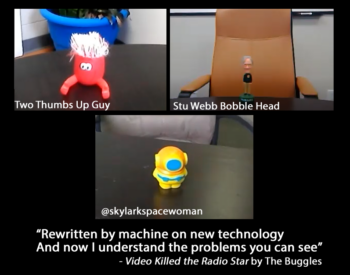by Justin L. Kelsey
republished with permission from Skylark blog
If you have a court hearing scheduled in the next few weeks, most likely you’ve been told it’s postponed. While some hearings will be scheduled telephonically and by video conference, the COVID-19 pandemic is likely causing significant delays in obtaining a hearing and an order or judgment. This is understandable as the court and the bar figure out how to adjust to this crisis. Regardless of how understandable these delays are, though, the experience for individuals going through conflict must be frustrating, disappointing, and in some cases devastating.
Now is the time to consider your alternatives to court.
Mediation, conciliation, collaborative representation, and arbitration are all available options to those looking to resolve their issues without further delay. Many of these dispute resolution professionals already have experience using videoconferencing to meet with clients and for us, our business has continued almost uninterrupted. At my office, Skylark Law & Mediation, PC, the majority of our clients have opted to continue receiving mediation and collaborative services via videoconferencing rather than postponing their meetings. It’s not the same as being in person, but for clients, it’s better than waiting to address their pressing issues.
So, if your clients are frustrated by the necessary delays in the court process, consider telling them again about their other options. If you’re looking for family conflict mediators you can find a list of professionals via the Massachusetts Council on Family Mediation website. If your clients may not be able to afford a private mediator, consider the many community mediation services in Massachusetts that provide services on a sliding fee scale basis – all listed on the Resolution Massachusetts website.
If you’re looking for a specific recommendation for a dispute resolution professional in any area of the law, feel free to reach out to me directly, or post a comment to this thread with your referral request.
Finally, this crisis is also an opportunity to think about how we plan to deal with conflict in the future. We can continue business as usual when this crisis has passed (which it will), or we can reflect on whether this crisis has highlighted a better way to approach conflict. Take these steps to be better prepared the next time an emergency situation occurs:
- Get to know a mediator or co-parenting coordinator who can be a resource for your family in times of crisis. Don’t assume your lawyer or the court is going to be there to help, or that they should be your first call when there is a conflict.
- For professionals, get trained in mediation or collaborative law so you can provide additional service options to your clients (visit these links to sign up for a mediation training or collaborative law training ).
- Encourage the Massachusetts Bar Association (or your local bar association) to add mediation, conciliation, collaborative representation, and arbitration, as service options in their lawyer referral directory. This has been proposed before to the Mass Bar and rejected, but it seems like it may finally be time to recognize how important it is to have alternatives to the court, and that the professionals who offer those alternatives offer a vital service.

